Synopsis
The work of historical fiction reconstructs the life of the narrator’s grandfather, Urbain Martien, before, during and after the First World War – as parts 1, 2 and 3 of the book. The narrator opens with a framing device, purporting to draw upon recollections in notebooks left him by the grandfather. (In an interview, Hertmans asserted that the novel indeed captures the memories of his own grandfather as recorded in a pair of notebooks decades after the war. “He gave me the notebooks a few months before he died, in 1981.” [4] The novel’s narrator left the notebooks unread, until gaining the wherewithal to face the material, and then to re-work them into a work of fiction, some thirty years later—the hundredth anniversary of the war.
The main character, Urbain Martien, was raised in a suburban quarter of Ghent during the belle-époque, and was devoted to his Roman Catholic faith. His father, Franciscus Martien, worked as a fresco painter for parish churches in the Low Countries and finally, in England. Urbain, in turn, acquired an interest in drawing and painting from his father. Urbain's mother, Céline Andries, endured the premature death of her husband, remarried, and saw her son Urbain off to work in a foundry and then, in 1914, off to war.
At the outbreak of the Great War, the 23 year-old Urbain is sent to the front, where he becomes a disciplined soldier and decorated combat hero, and ever the dutiful . The agonies of trench warfare are described “from up close.” Injuries take Ubain to recover in Liverpool—coincidentally the site of one of his father's paintings.
In the third section, Urbain returns home, falls in love with Maria Emelia Ghys, a step-sister. Before he can marry, the story takes a tragic turn, when Maria succumbs in the Spanish flu epidemic. Urbain marries Maria's sister Gabrielle, producing a daughter (the narrator's mother) in 1922, but the union lacks the affection Urbain had known with Maria Emielia. Urbain continues as a devoted artist (and especially as a copyist) into early retirement and until his death. The grandson, the narrator, visits sites in West Flanders and reviews personal archival materials, in an attempt to understand, even reconstruct, something of his grandfather's life experiences.

Erich Maria Remarque was a German-born novelist. His landmark novel All Quiet on the Western Front (1928), based on his experience in the Imperial German Army during World War I, was an international bestseller which created a new literary genre of veterans writing about conflict. The book was adapted to film several times. Remarque's anti-war themes led to his condemnation by Nazi propaganda minister Joseph Goebbels as "unpatriotic". He was able to use his literary success and fame to relocate to Switzerland as a refugee, and to the United States, where he became a naturalized citizen.

The Tin Drum is a 1959 novel by Günter Grass, the first book of his Danzig Trilogy. It was adapted into a 1979 film, which won both the 1979 Palme d'Or and the Academy Award for Best Foreign Language Film in 1980.

Winfried Georg Sebald, known as W. G. Sebald or Max Sebald, was a German writer and academic. At the time of his death at the age of 57, he was according to The New Yorker ”widely recognized for his extraordinary contribution to world literature.”
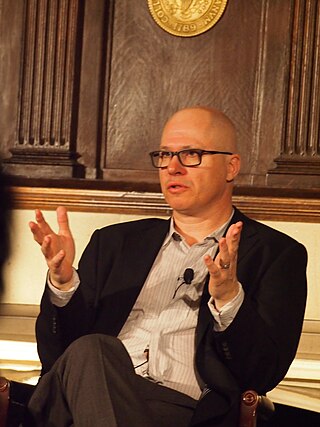
Aleksandar Hemon is a Bosnian-American author, essayist, critic, television writer, and screenwriter. He is best known for the novels Nowhere Man (2002) and The Lazarus Project (2008), and his scriptwriting as a co-writer of The Matrix Resurrections (2021).

Chaim Grade was one of the leading Yiddish writers of the twentieth century.

Austerlitz is a 2001 novel by the German writer W. G. Sebald. It was Sebald's final novel. The book received the National Book Critics Circle Award.
Ágota Kristóf was a Hungarian writer who lived in Switzerland and wrote in French. Kristóf received the "European prize" from ADELF, the association of Francophone authors, for Le Grand Cahier. It was followed by two sequels which are collectively The Notebook Trilogy. She won the 2001 Gottfried Keller Award in Switzerland and the Austrian State Prize for European Literature in 2008.

The Emigrants is a 1992 collection of narratives by the German writer W. G. Sebald. It won the Berlin Literature Prize, the Literatur Nord Prize, and the Johannes Bobrowski Medal. The English translation by Michael Hulse was first published in 1996.

Anthea Bell was an English translator of literary works, including children's literature, from French, German and Danish. These include The Castle by Franz Kafka, Austerlitz by W. G. Sebald, the Inkworld trilogy by Cornelia Funke and the French Asterix comics with co-translator Derek Hockridge.

The Rings of Saturn is a 1995 novel by the German writer W. G. Sebald. Its first-person narrative arc is the account by a nameless narrator on a walking tour of Suffolk. In addition to describing the places he sees and people he encounters, including translator Michael Hamburger, Sebald discusses various episodes of history and literature, including the introduction of silkworm cultivation to Europe, and the writings of Thomas Browne, which attach in some way to the larger text. The book was published in English in 1998.
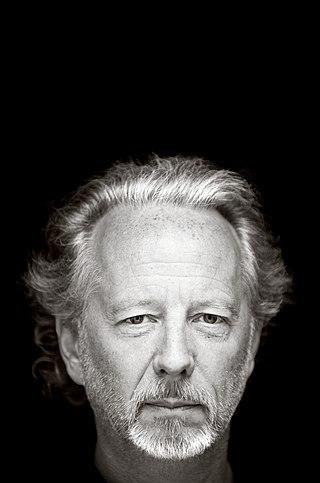
Stefan Hertmans is a Flemish Belgian writer. He was head of a study centre at University College Ghent and affiliated researcher of the Ghent University. He won the Ferdinand Bordewijk Prijs in 2002 for the novel Als op de eerste dag.
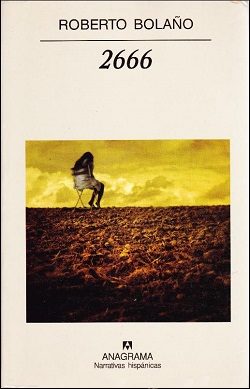
2666 is the last novel by Roberto Bolaño. It was released in 2004 as a posthumous novel, a year after Bolaño's death. It is over 1100 pages long in its original Spanish format. It is divided into five parts. An English-language translation by Natasha Wimmer was published in the United States in 2008 by Farrar, Straus and Giroux and in the United Kingdom in 2009 by Picador. It is a fragmentary novel.

The Land of Green Plums is a novel by Herta Müller, published in 1994 by Rowohlt Verlag. The novel portrays four young people living in a totalitarian police state in Communist Romania, ending with their emigration to Germany. The narrator is an unidentified young woman belonging to the ethnic German minority. Müller said the novel was written "in memory of my Romanian friends who were killed under the Ceauşescu regime".

Gert Ledig, full name Robert Gerhard Ledig, was a German writer.

Herman Koch is a Dutch writer and actor. He has written short stories, novels, and columns. His best-selling novel The Dinner (2009) has been translated into 21 languages. He has acted for radio, television, and film. He co-created the long-running TV series Jiskefet (1990–2005).
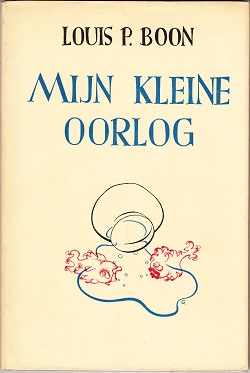
My Little War is the fourth novel by Louis Paul Boon, first published in 1947. A translation was produced by Paul Vincent in 2010.

Destruction and Sorrow Beneath the Heavens is a 2004 book by the Hungarian writer László Krasznahorkai. The narrator, László Stein, travels in China in search of examples of classical Chinese culture and understanding how contemporary Chinese society relates to it. An English translation by Ottilie Mulzet was published in 2016.
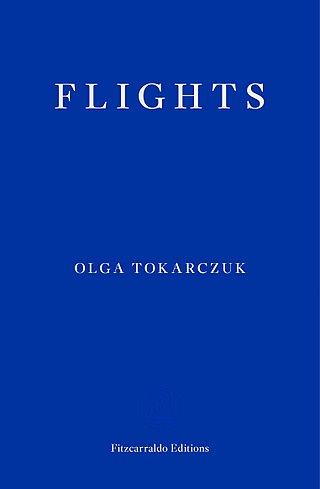
Flights is a 2007 fragmentary novel by the Polish author Olga Tokarczuk. The book was translated into English by Jennifer Croft. The original Polish title refers to runaways, a sect of Old Believers, who believe that being in constant motion is a trick to avoid evil.
Sasha Dugdale FRSL is a British poet, playwright, editor and translator. She has written six poetry collections and is a translator of Russian literature.
The Vondel Prize is a literary translation prize for full-length works from the Dutch into English. The prize was established in 1996 by the Foundation for the Production and Translation of Dutch literature, and is named after the 17th-century Dutch writer Joost van den Vondel.

















